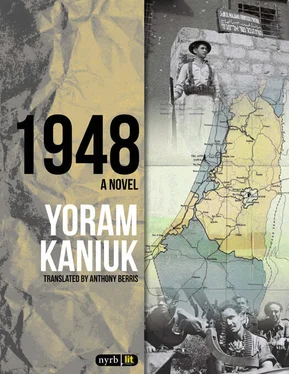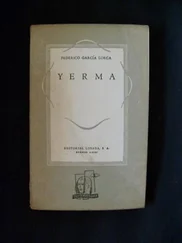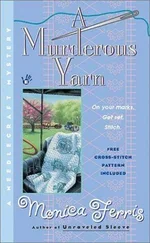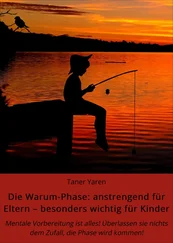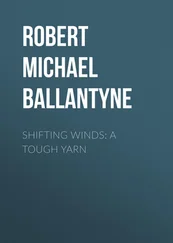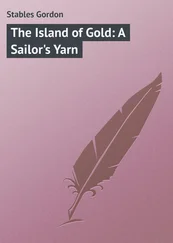For my dead and living comrades from the Harel Brigade, and for Hanoch Kosovsky, a valiant warrior, who loves who I am and looks askance at me, a man of this land, a bloodthirsty man, like all of us. With profound love for all who were there in the hell of slaughter, and yes, who also established a state.
And when I passed by thee, and saw thee polluted in thine own blood, I said unto thee when thou wast in thy blood, Live; yea I said unto thee when thou wast in thy blood, Live.
— Ezekiel 16:6
Whether or not it happened, one way or another, no memory has a country, no country has a memory. I can remember or invent a memory, and at the same time invent a country or think that in the past it was different. There is no country that can be different if it was first not different.
Most important of all is whether it is true that the confused man at the hospital did actually tell me, from the depths of his bitter weeping and without me asking, that everything in life and perhaps in death too (even though he admitted that he hadn’t yet been there) is based on three fundamentals: vengeance, betrayal, and envy. I asked him what about love, and he replied, Love — only when it’s betrayed or in fun. Love comes after betrayal, but with you it will come beforehand.
I thought I’d write a book quite the reverse of a laudable one and call it “The Funniest Thing that Happened to Me in the War.” In the end I wrote it under this other name, 1948 , which isn’t at all funny, because I truly wanted to write about the funniest thing that happened to me in the war.
Right after the conversation with the confused man at the entrance to the hospital in bombarded Jerusalem, which was an Italian monastery converted into an abattoir for soldiers, I was laid on a real bed and was flooded with pleasure, because after all those months I was lying on a sheet. My leg hurt a lot, but once I settled in I felt good, the sheet touched my back, a glass of water stood beside the bed and I drank from it, and just as I began feeling like a human being once more, there was a sudden loud noise, the ceiling collapsed from a shell that sliced through it, its hanging innards began falling like jets of snot, and two nuns hurried to me, got me onto a stretcher, and on the way to the cellar I was covered with ancient Christian plaster that continued to drizzle from the ceiling. The sister looked at me, I was half naked, and in Germanic Hebrew she said that attempting to prevail over Satan was like a spark from hell falling onto the soul’s wedding dress. According to Ben-Azzai — that’s what she said, I remember! — according to Ben-Azzai, “My soul thirsts for Torah, and the preservation of the world is in the hands of others.”
There was a connection there. I was young. She was young. I was half naked. She was dressed as a nun. But she had decided to be a virgin whereas I was forced to be one, and she, I don’t remember why, went on to say that the doctors are playing God! I evidently do remember, because it’s impossible to remember the terrible pain, but I remember that it hurt. The nuns put me down, covered in dust, this time onto a mattress without a sheet. For some reason I laughed, and one of the nuns — who because it is said that there is no humor in heaven had never heard laughter, and didn’t know exactly what this sound coming from me was, and why my face had suddenly opened — cleaned me up thoroughly and asked what I was thinking when I turned up my mouth like that. She spoke Hebrew quite fluently, and I replied that I just, I don’t think, I just do it. She said, But you look like someone who knows how to think, and I told her that maybe I’d try thinking, and she said, You know, you’re a sweet man. And then she stopped short because she didn’t know what to say to an eighteen-year-old boy about to have a leg amputated. I told her that what made me laugh was that only now, when I wouldn’t be fighting anymore, I realized that I had no idea in which war I’d been fighting and what exactly had happened to me in that war and why I’d carried on fighting when the chances of my getting back home were nil. I told her I understand that I don’t exactly know who I am. That I don’t know what I’m doing and don’t know where I’ve been. After she laid me down on the stinking mattress in the cellar that was gradually filling up with the wounded, she ran into the corridor to fetch somebody else.
Throughout the days of the fighting I didn’t think. I didn’t make plans. I did what I was told and took initiative only when there was no choice and we had to improvise. I was told to sleep, I slept. I was told to get up, I got up. They gave out food, I ate. When they didn’t, I wasn’t hungry. It was evidently true that they put sodium bicarbonate in the small quantity of water we were given to drink because I didn’t think about girls, who a year earlier had devoured me with their budding femininity. I remembered that there had been absolutely nothing inside my battered skull. We were like kids, so shamefully young, volunteers, we were boors, partisans. Except for me there weren’t any youngsters who had previously worked in youth movements — they would be called up later, after we’d finished establishing a state for them. We were just one from here and another from there, we still had no documents whatsoever, except for Palestinian birth certificates, which of course we didn’t carry with us. So why had I remained in that parched hole and why hadn’t I gone home while the siege had not yet been tightened? Why hadn’t I gone home? After all, nobody would have known what had happened to me and anyway, there was no time to think, and they would surely have assumed I’d been captured by the Jordanians or died and been buried in a forlorn grave “known only to God,” the way the gravestones were inscribed in the field of the dead in Trumpeldor Street in Tel Aviv, and perhaps they’d find my body if I had indeed died someplace where no one imagined I’d be.
I was a fool who’d gone off to be a valiant soldier and smite the enemy. That’s what I was. Had I enlisted so early, at seventeen and a half, because I was a hero or was it because I was scared and had run away from something? And if so, from what? I was evidently a coward. People with creative imaginations also possess this ability to be fools who volunteer for lost causes. I emerged from my dread as a hero who had overcome his fears. And beforehand I’d been a bundle of fears. Of death. Of the dark. Of people. Of crowds. Of disease-bearing flies, of Anopheles mosquitoes that carry malaria, about which my mother, Sarah, would speak as a woman who’d been personally acquainted with them in her youth in Palestine. I wasn’t a courageous hero like many of the troops. I was somebody who didn’t give up. Somebody who, although frightened, saw death and did not flinch. I knew that aboard the small ships at sea there were thousands of homeless Holocaust survivors unwanted by any country, and I’d read that three years earlier Herr Goebbels had said that if the Jews were so clever and so talented, and played so beautifully, how was it that no country wanted them, and I remember it sticking in my craw and I wanted to take part in bringing those Jews here.
Was that truly the real reason I enlisted in November 1947, a short time before the United Nations resolution on the partition of Palestine? What I do remember is that one day, in the first semester in twelfth grade at the Tichon Hadash High School, which was the most wonderful place to be, with its stirring principal, Tony Halle, who looked like a magnificent mouse and one day stood on a chair and closed her eyes, with tears oozing from beneath their lids, and with a kind of profound yearning began describing how, in 1077, Heinrich IV stood facing the fortress of Canossa, where Pope Gregory VII was hiding behind a curtain, and how poor Heinrich stood there in the cold, the snow, in a desolate land, how he stood there barefoot, she said with her deep beauty, how he stood without shoes, without socks, without a coat, without a shirt, without underpants, and wept before the pope, who was hiding in warm clothing, and behind him a blazing hearth, and he looked and saw the handsome, heroic Heinrich IV, the magnificent and beloved king, his true love, freezing naked and pleading for his life, and all of us, the whole class, wept at hearing about the fate of Heinrich IV, and one day, just like that, I left that sweet school with an adage that even I didn’t believe, that we wouldn’t drive the British out with cube roots, and I volunteered for the Palyam* because I said I’d bring the survivors to our country’s shores and didn’t really think about where the boats carrying them would come to.
Читать дальше
